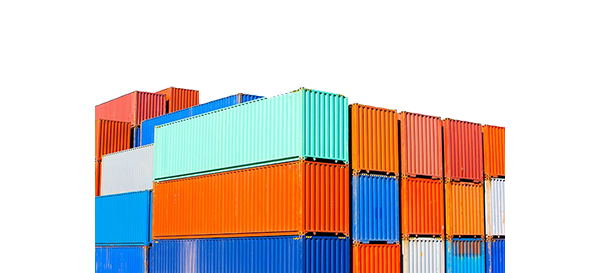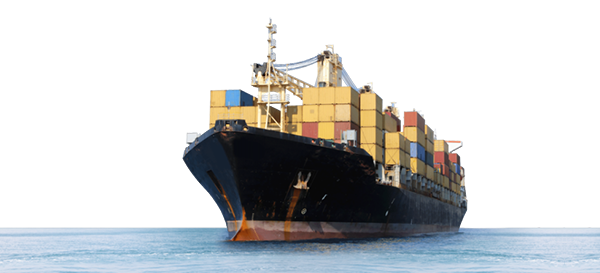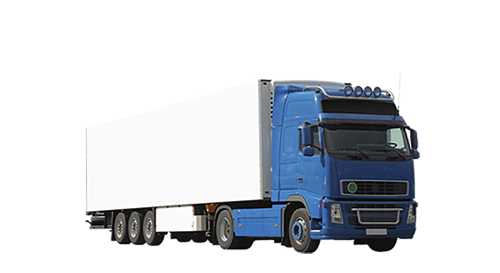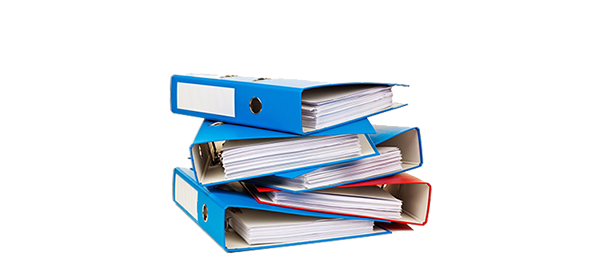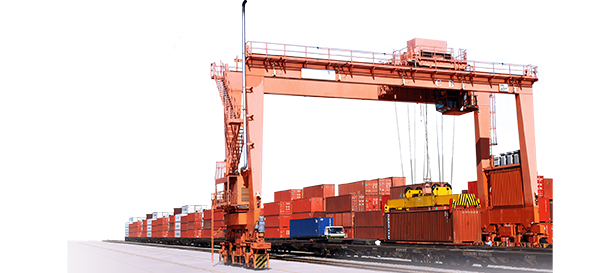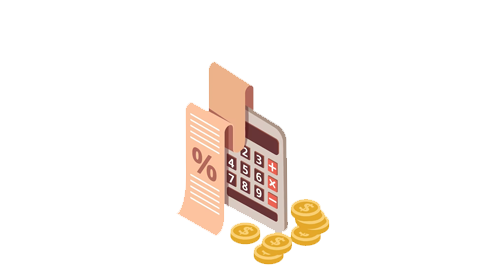

 Trade with the whole world!
Trade with the whole world!
VAT refunds on imported goods are only possible if certain conditions are strictly observed. Otherwise, serious problems with the tax authorities and financial losses cannot be avoided. You will learn what these conditions are, how and why they must be complied with in our article.
The import of goods in the legislation of Russia recognizes the import of those into its territory without mandatory export. Import is considered an absolutely independent object of VAT taxation, which means that importing taxpayers are obliged to act in accordance with the norms of the Tax Code of the Russian Federation, which clearly defines the procedure for taxing import procedures.
Obligations to pay VAT upon import from the applicant appear as soon as the customs officers register the declaration. In this case, VAT must be paid in full at customs before the goods are released for free circulation. The tax is calculated at established rates from the total amount, which is the customs value of imported goods, the excise tax established for certain groups of goods, as well as customs duty. To determine the correct taxable base, the currency value of goods must be converted into rubles at the exchange rate of the Central Bank of the Russian Federation on the date of registration of the declaration.
In accordance with Art. 172 of the Tax Code of the Russian Federation, VAT that was paid during customs procedures can be deductible, thereby reducing further tax payments. However, this requires the simultaneous fulfillment of certain conditions:
- imported goods are purchased for mandatory participation in transactions subject to VAT.
- the arrival of the goods is reflected in the accounting.
- the importer wishing to apply deductions has documentary evidence of the actual payment of customs VAT.
And another moment. If the import VAT was unlawfully excessively withheld by customs and then returned by it, the deduction must be restored.
Now let's look at these conditions in more detail. According to the customs legislation, the import operation begins at the moment the declaration and all the documentation necessary for processing the imported goods are handed over to the customs officers. It ends with the release of goods by a customs officer who puts the appropriate marks on the declaration and other related documents - transport, commercial, etc.
This means that the imported goods will be considered released from customs only when the importer has a customs declaration and other necessary accompanying papers with the mark of customs officers authorizing the release.
In order to confirm his right to a deduction, the importer is obliged to submit the following documents to the tax authorities along with the tax return in which he declared the deductions and reimbursement of import VAT:
- a customs declaration with the mark “Release allowed” affixed by customs officers;
- a document on the payment of tax, which is evidence that the VAT has actually entered the budget.
Further, tax inspectors will conduct a mandatory check of the validity of the import VAT refund in accordance with Art. 88 of the Tax Code of the Russian Federation, during which they will need to submit all the papers available for import operations. In the absence of claims to the documents by the tax authorities, the importer will be issued a decision on compensation upon completion of the check.
VAT paid at customs when importing goods can be deducted from this tax, however, for this, a number of conditions must be met in relation to the imported goods:
- it is intended for transactions subject to VAT;
- it is reflected in the accounting;
- the tax relating to it has been paid to customs.
Each of these points must be confirmed by documents that the Federal Tax Service has the right to request to verify the legality of applying the customs VAT deduction.
Export VAT is considered to be a tax that arises when goods are sold outside the Russian Federation. When exporting goods, the taxpayer applies a 0% rate, which actually exempts him from paying tax on such operations. But, if it was not possible to justify the specified rate within the period allotted by the norms of the Tax Code of the Russian Federation, VAT will have to be paid to the budget.
When carrying out "external" shipments, it is necessary to take into account the norms of Art. 170 of the Tax Code of the Russian Federation on keeping separate records of taxable and non-taxable transactions.
When selling products abroad, there are 2 directions of shipments:
- to the EAEU countries;
- other foreign states.
A distinctive feature of sales to the EAEU countries is the availability of a simplified export procedure, which is due to the agreement between the countries on mutual cooperation.
Therefore, the general list of documents justifying the 0% rate is small and consists of:
- from the contract;
- shipping and transport documents;
- import declarations or list of declarations.
The main documents in this case are:
- customs declaration.
- contract.
- shipping documents.
In accordance with Art. 165 of the Tax Code of the Russian Federation, if sellers selling goods for export do not collect a package of documents justifying the 0% rate, they will have to fulfill their obligation to pay tax. It will be necessary to pay tax at rates of 10 or 20%.
After the stage of submitting to the IFTS all the necessary documents justifying the shipment outside the Russian Federation, a desk audit begins, the purpose of which is to determine the validity of the application of the export rate. At the same time, it should be noted that, in accordance with the Tax Code of the Russian Federation, after 180 days from the date of the foreign trade operation, if the export of a company or individual entrepreneur is not confirmed, tax is charged, however, this does not deprive them of the opportunity to use the 0% rate later.
We offer our customers not only comprehensive turnkey services, but also individual services, in particular, customs clearance services:
consulting in the conclusion of foreign trade contracts;
determination of the corresponding Customs Commodity Code of goods;
Prompt calculation of customs payments;
registration of certificates for customs clearance;
verification of documents submitted to the customs authorities when submitting a goods declaration;
advice on all questions you may have
We interact directly with the customs authorities and control every stage of customs clearance - from cargo placement and declaration to the completion of customs clearance and cargo release.
Contract with all appendices, annexes and specifications (doc + pdf);
UCN (unique contract number);
Contract for carriage of goods (if required by the terms of delivery) + bill of lading;
An invoice for the transport of goods with the cost of BEFORE and AFTER the border (depending on the terms of delivery, see Incoterms 2020);
The transport document: air waybill, CMR in pdf, jpg format
Invoice or bill of lading confirming the purchase of goods in Russia;
Technical documentation (description, pictures, drawings, brochures, material, application, etc.);
Additional permits depending on the goods (certificates, licenses, etc);
Documents confirming the payment in advance for the goods (if such is stipulated in the contract terms);
Contract with all additions and appendices;
UCN (unique contract number);
Invoice;
Packing List;
Contract for transportation of goods (if required by the terms of delivery);
An invoice for the transport of goods with a division of cost BEFORE and AFTER the border (depending on the terms of delivery, see Incoterms 2020);
Insurance policy (depending on the terms of delivery, see Incoterms 2020) + bill of lading;
Documents confirming the prepayment for the goods (if such is stipulated in the contract terms);
Technical documentation on the goods (description, pictures, drawings, brochures, material, application, etc.);
Additional permits depending on the goods (certificates, PS, etc.);
Additional documents confirming the declared customs value (export customs declaration, manufacturer's price-lists, information on the value of the goods in the domestic market, etc.) - This point does not always apply, but we always recommend providing these documents if possible. Thus we will help the inspector to agree with the price of our goods;;
Payment orders for payment of customs duties.
Charter of the organization and changes to it (scan + word);
Memorandum of incorporation and changes to it (scan + word);
Certificate of registration with the tax authority;
Certificate of registration in the Unified State Register of Legal Entities;
Certificate from the bank on opening of accounts (from the bank, where the UCN (unique contract number));
Minutes of the General Meeting or the Founders' Resolution on appointment of the General Director;
Order on appointment of General Director;
The order on appointment of the Chief Accountant;
Below are the answers to the most frequently asked questions. Can't find an answer to your question? Write or call us!
We contact you in any convenient way, hold a consultation-conversation, discuss the tasks, make an assessment. Make an assessment and find a solution. Then we sign documents on cooperation, conclude an agreement. You pay in advance and we begin working.
Yes, that's not a problem. You can work with us and do business all over the world*.
There are no restrictions, both small and large businesses can apply to us - we can help them all!
years of success
lawyers on staff
loyal customers
trusts worldwide
years of success
thousand tons of cargo per year
rendered services
completed contracts
They trust us
Legal entities for currency transfers
Most problems are solved by opening foreign legal entities and providing foreign accounts. We can help you with this!
Free Consultation
Free legal help by phone or some other communication channel
Strict confidentiality
We comply with all norms of business communication. Our goal is to help your business.
Contacts
Address
Russia, Moscow, 29 Vernadskogo Ave.
Russia, Nizhny Novgorod, Molodezhny Ave., 33
Kazakhstan, Astana, Mukhtar Auezov Street, 24/1
Kyrgyzstan, Bishkek, Nasirdin Isanov Street, 25, 2nd floor, office 8.
Uzbekistan, Tashkent, st. Eski Otchopar house 3.
Contact Us
Send request
Send your request, we will contact you shortly.
